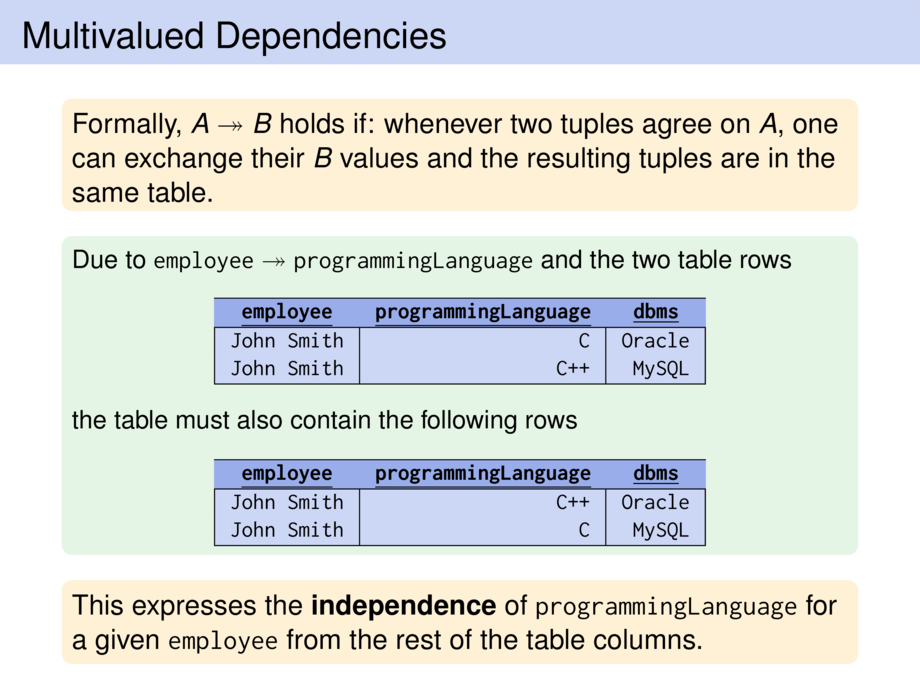



































































































253/291
\begin{frame}
\frametitle{Multivalued Dependencies}
\begin{goal}{}
Formally, $A \mvd B$ holds if:
whenever two tuples agree on $A$, one can exchange their
$B$ values and the resulting tuples are in the same table.
\end{goal}
\pause
\begin{exampleblock}{}
{\small
Due to $\sql{employee} \mvd \sql{programmingLanguage}$ and the two table rows
\begin{center}
{\footnotesize\ttfamily
\colorbox{rellight}{%
\begin{tabular}{|r|r|r|}
\hline
\hd{\underline{employee}} & \hd{\underline{programmingLanguage}} &
\hd{\underline{dbms}}
\\
\hline
John Smith & C & Oracle \\
John Smith & C++ & MySQL \\
\hline
\end{tabular}%
}}
\end{center}
the table must also contain the following rows
\begin{center}
{\footnotesize\ttfamily
\colorbox{rellight}{%
\begin{tabular}{|r|r|r|}
\hline
\hd{\underline{employee}} & \hd{\underline{programmingLanguage}} &
\hd{\underline{dbms}}
\\
\hline
John Smith & C++ & Oracle \\
John Smith & C & MySQL \\
\hline
\end{tabular}%
}}
\end{center}
}
\end{exampleblock}
\pause
\begin{goal}{}
This expresses the \emph{independence} of \sql{programmingLanguage}
for a given \sql{employee} from the rest of the table columns.
\end{goal}
\end{frame}

